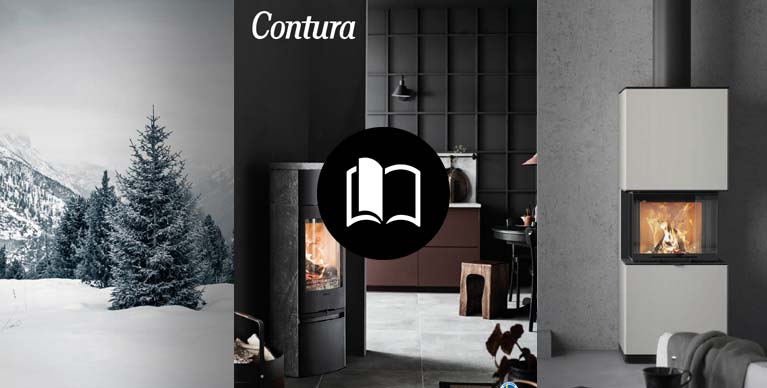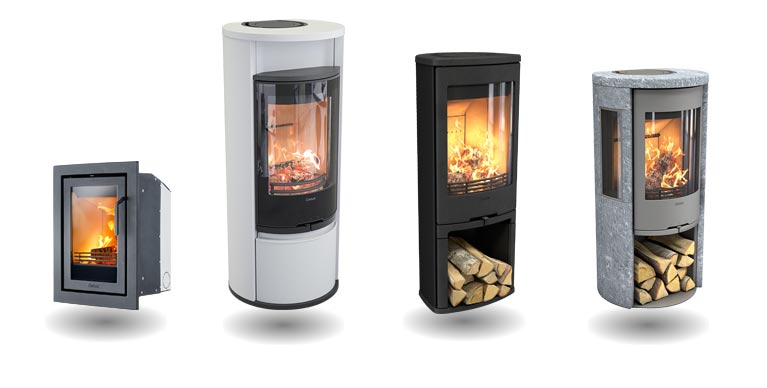Best wood to burn in your wood burning stove
Wood is a biofuel that, when correctly lit, is part of the natural cycle. As a tree grows, it consumes water and carbon dioxide in photosynthesis. This process releases oxygen, which we need to breath. When the wood is burnt or decomposes it releases the water and the carbon dioxide. The oxygen that is created when the tree grew is also consumed in the process. All this takes place in a cycle, which means that burning wood does not contribute to the greenhouse effect.
Logs are best stored in a woodshed with a good air circulation
It is important that the wood does not lie on the ground and that it is as airy as possible at the roof and sides. Logs that have been split early in the spring can in the best case be used the following winter. But it is better if the wood can dry for two spring seasons because wood dries best in the spring before the leaves bloom. Damp wood burns poorly, gives off less heat and is worse for the environment. Logs to be burnt should not contain more than 20% moisture content. Kiln dried logs and those branded ‘ready to burn’ are guaranteed to fulfil this requirement.
Split logs dry quicker than unsplit
Birch logs must be split as quickly as possible, otherwise they become hard and difficult to work with. Pine and fir trees are easier to split if they have been allowed to dry a little. The logs should be stored at room temperature for 24 hours before burning. Covering the logs with a tarpaulin for example is not a good idea because the moisture from the ground and the wood cannot then evaporate. Damp wood is more susceptible to rot, which quickly consumes the energy value of the wood.
Never burn painted wood, impregnated timber, plywood or similar
It can damage the fireplace and the environment. Oak logs are excellent for burning but it is important to mix them with other wood when burning. Oak contains a lot of energy, but also a lot of tannin which is aggressive to both the stove and masonry.
Related wood stove content

Contura wood stove brochures
Take a look inside our digital wood stove brochures and be inspired by our stoves.

Stove selector
Use our stove selector to find the right stove for your needs, just in a couple of minutes.

Contura dealers
Contura have a network of connect dealers across the UK. Find your closest now!
